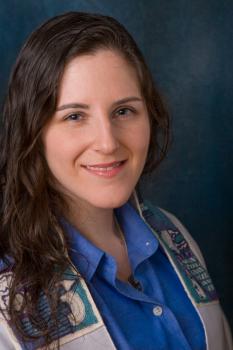On August 31st, 2005, I sat waiting for a connection in Brussels, coming back from a summer studying in Israel. I was about to begin rabbinical school in just a few weeks. TVs streamed footage of the devastation of Hurricane Katrina; it was the first I knew of it, having been cut off from most news sources during my last days of travel. We learned in the months and years to come, if we did not already know, that recovery from natural disaster was not assured, even in our wealthy country. We learned that how well you recovered from disaster had more to do with the color of your skin and what was in your bank account than much else.
It is hard to read parshat Noach while watching Puerto Rico, the US Virgin Islands, parts of India and Bangladesh, and other hurricane-ravaged communities bail out from real-life flooding. I feel a bit like Noah and his family—watching the flood waters rise from a safe spot behind a computer screen.
I am struck by the sense of luck that I feel, safe, at least so far this year, from the increasing threat of natural disaster. Our parsha begins with these words: “This is Noah’s chronicle. Noah was a righteous man—he was pure—in his generation” (Genesis 6:9). The rabbis of the Talmud puzzle over this description. Was Noah saved because of his righteousness? Was he righteous compared to people of our time, or only compared to the lawlessness that prevailed in his own time? Was his failure to argue on behalf of others who were drowned in the flood a mark against his righteousness? Or is he blameless for that as well?
The rabbis comment, “Even Noah had a death sentence sealed against him, but he found favor in the eyes of God” (Sanhedrin 108a). That is, Noah should have died also. His fate was sealed, but then something happened. There is no explanation. We have no idea why he should be selected over all others. Why did God pick Abraham, for that matter? God’s favor was capricious. Noah got lucky. Those of us who live in the global North, those of us who have wealth and privilege to fall back on, who are bailed out quickly in times of disaster, whose elected officials are responsive to our calls for help—we get lucky, over and over again.
Sanhedrin continues:
The people of the generation of the flood became arrogant only because of the bounty that the Holy One of Blessing lavished upon them….They said, “Do we need the Almighty for anything other than water? [Not even that!] We have rivers and streams from which to supply ourselves.” The Holy One of Blessing said, “With the very bounty [of water] that I lavished upon them, they are provoking me! With that I will punish them!”
God’s rebuke to the flood generation is evident today in the increasing gulf between communities that have access to clean tap water and yet buy bottled water and those who receive shipments of bottled water in the midst of crisis. The bitter irony is that storms and floods—made even more deadly because of human-driven climate change—destroy natural waterways and constructed water infrastructure each year. Too many people are surrounded by water and yet have no clean water to drink. This is the humanitarian crisis of our age; we have made a mockery of the blessing of clean and ample water.
Access to clean water is a human right. Those who do not enjoy that right are victims of circumstance, globalization, capitalism, and racist local practices. And we now know all too well that they do not live only in far-flung places. In the past few years, I have become a regular donor to The Human Utility (www.detroitwaterproject.org/)
After the flood, when the destruction was laid bare, when the waters began to dry out, God’s first blessing is one of unity—a covenant with all of creation and a sign of peace. Was this a moment of regret for God, or a possibility of doing things a different way? This must be the way that we respond, as well. Despite our occasional distance from the scenes of destruction, we are deeply connected to this reality through the choices we make each day. Let us make a human covenant with all creation, and choose both to protect our water and to connect those in our own communities with clean, running water.
Rabbi Ariann Weitzman is the Assistant Rabbi and Director of Congregational Learning for Bnai Keshet Reconstructionist Synagogue, Montclair, NJ. She is dedicated to the broad human rights mission championed by T’ruah and to working locally for concrete social change.

